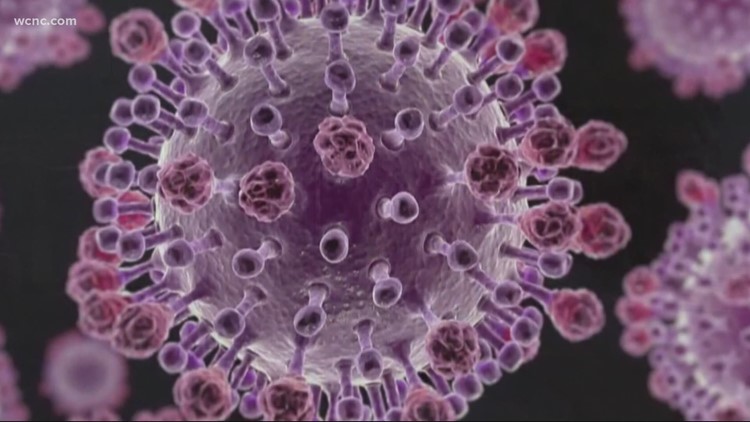CHARLOTTE, N.C. — Most people are ready to put the COVID-19 pandemic in the past, but for some, it’s not that easy. Doctors believe somewhere around 30% of people who have tested positive for COVID-19 can develop long-haul COVID-19 or persistent and debilitating symptoms that continue weeks to months after infection.
New research shows someone who is young and healthy or has a mild case of the virus is not necessarily in the clear.
It may feel like the pandemic has been dragging on, but, COVID-19 is fairly new and every day doctors are learning more about the virus and its lasting impacts.
“It is a burden on patients and it’s a problem that they’re trying to deal with and that we’re trying to help them with,” Dr. Loretta Que, a pulmonologist with Duke Health, said.
Long COVID-19, or ongoing health problems four or more weeks after infection, is keeping many from returning to normal.
“It’s like rolling the dice," Brooke Keaton told WCNC Charlotte. "Today you're having a hard time breathing. Today you can't think of words. Today your hip is hurting so bad that you don't want to get up."
What factors put someone at risk for becoming a long hauler are not so cut and dry according to experts from Duke Health.
The omicron variant infected a record-breaking number of people. Most had a mild case, but research shows there is still a risk some develop lingering symptoms.
“Even though people have milder symptoms, it doesn’t mean they won’t develop long COVID symptoms in the future," Dr. Coral Giovacchini, a critical care specialist and pulmonologist with Duke Health said. "I think we’re all hopeful that as milder variants come through that we won’t see as much of this, and it won’t be as debilitating but it’s just something we don’t know yet."
Giovacchini said so far, research shows the number of symptoms someone has when they’re infected may be a clue to whether they’ll suffer long term.
“If someone has more than five types of symptoms that they’re presenting with their acute COVID infection, that may predispose to ongoing long COVID symptoms, they don’t necessarily need to be the same symptoms but that may be something that predisposes regardless of the initial severity of the disease,” she said.
Doctors said long COVID-19 has been seen in people who are vaccinated, but typically the symptoms are not as severe.
Contact Chloe Leshner at cleshner@wcnc.com and follow her on Facebook, Twitter and Instagram.



